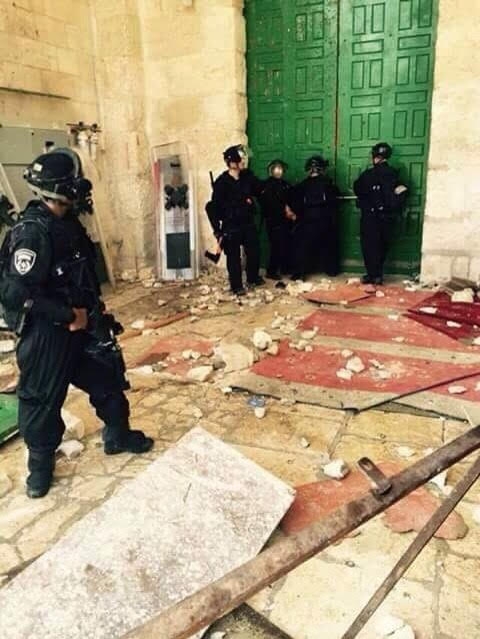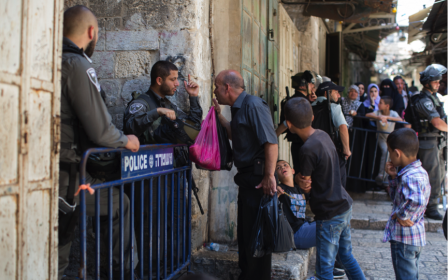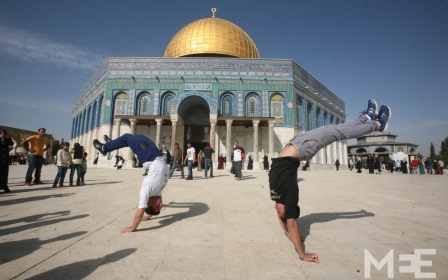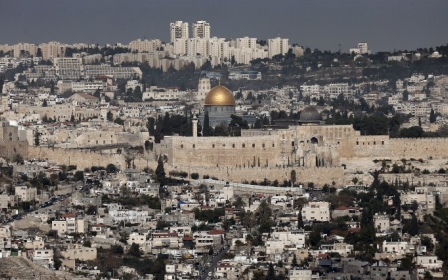Jerusalemites warn of rising tensions after clashes at al-Aqsa Mosque
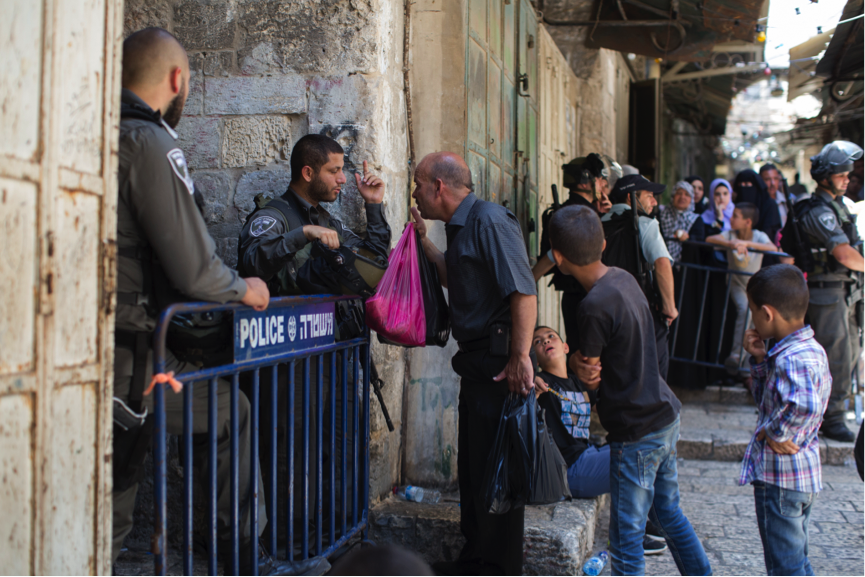
At least seventeen protesters were injured at al-Aqsa mosque on Sunday morning in clashes with the Israeli military.
Fighting broke out during a scheduled visit by a group of Jewish worshippers to mark Tisha B’Av, a commemoration of the ancient destruction of Jewish holy sites.
Israeli forces entered the compound at 07:00 local time (04:00 GMT) to clear out a group of Muslim worshippers who had stayed overnight in the mosque to prevent the visit, according to Middle East Eye's correspondent on the ground, Faiz Abu Rmeleh.
Rmeleh reported that clashes broke out after Israeli police stormed the mosque to allow a number of Jewish worshippers, including the Israeli minister of agriculture Uri Ariel, to enter.
Palestinian news agency Maan said that Israeli police fired rubber-coated steel bullets inside the mosque.
Many of those injured were wounded by ammunition and by tear gas inhalation.
Israeli news sites reported that four police officers were also injured.
At the same time, Israeli forces closed the compound, preventing Muslim worshippers from entering the mosque for dawn prayers.
Ehab al-Jallad, a researcher in Jerusalem affairs, said he feared Sunday’s clashes could herald an uptick in violence around the contested site.
“Israeli forces prevented Palestinians from entering al-Aqsa Mosque until the afternoon, which led to fierce clashes between the [mosque] guards and the occupation forces,” Jallad told MEE.
“We consider it a crime to prevent people from entering al-Aqsa Mosque - this will return matters to the level of violence seen last year. The Israeli government is creating violence and seizes control of our places of worship. I don’t know what the world expects us to do in this situation.”
Huge clashes rocked Jerusalem in autumn last year after Israeli authorities closed al-Aqsa Mosque in a move dubbed a “declaration of war” by Palestinian President Mahmoud Abbas, following an assassination attempt against a prominent right-wing Jewish activist.
The closure of the mosque sparked huge outcry and a number of lone-wolf attacks in Jerusalem. Tensions subsided somewhat after Jordan's King Abdullah intervened to call for calm.
Middle East Eye propose une couverture et une analyse indépendantes et incomparables du Moyen-Orient, de l’Afrique du Nord et d’autres régions du monde. Pour en savoir plus sur la reprise de ce contenu et les frais qui s’appliquent, veuillez remplir ce formulaire [en anglais]. Pour en savoir plus sur MEE, cliquez ici [en anglais].


